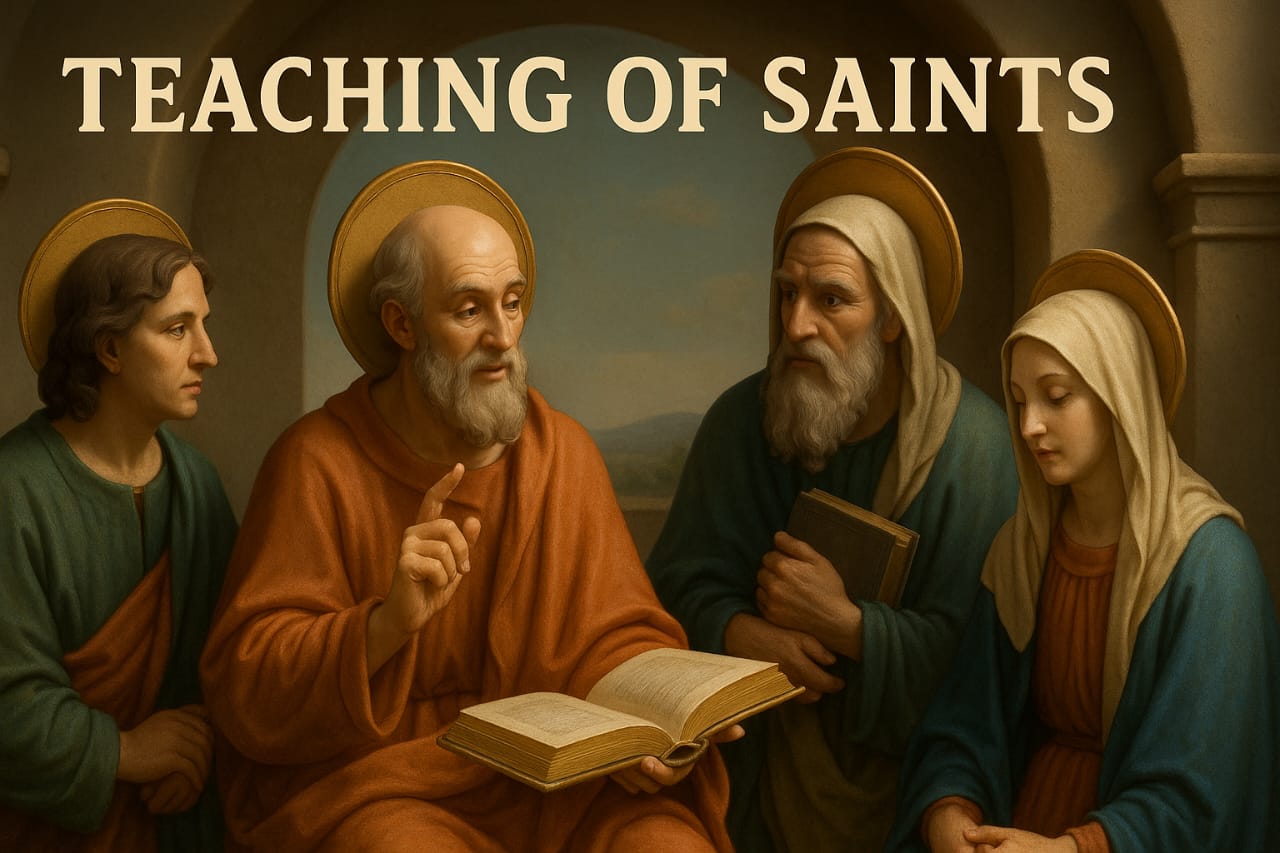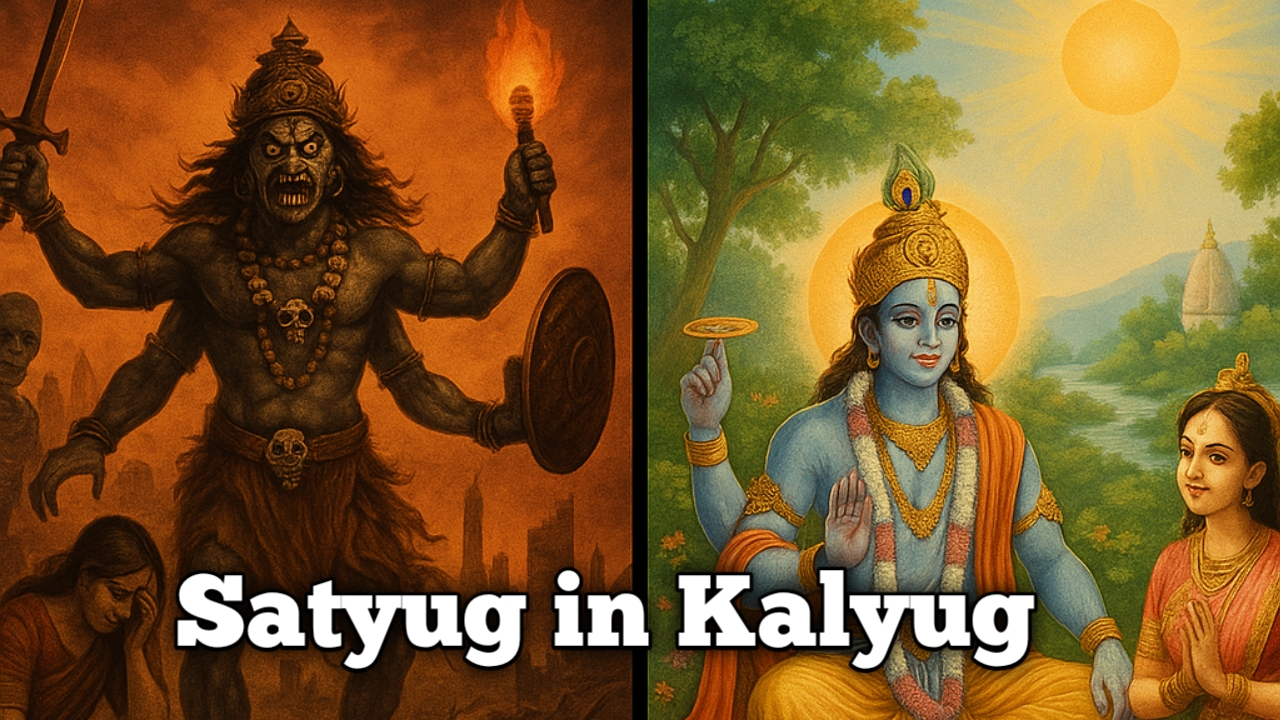Who is a True Saint?
The question of who a true saint (or Satguru) is has been clearly answered in holy scriptures like the Vedas, the Bhagavad Gita, the teachings of Kabir Sahib, and other sacred texts. Below are the main characteristics of a true saint:
1. Teaches According to the Scriptures (Vedas and Gita)
A true saint always gives spiritual knowledge that is in alignment with the Vedas, Bhagavad Gita, Puranas, etc.
Bhagavad Gita Chapter 15 Verses 1–4 describe the Supreme God and the saint who leads to Him.
2. A Complete Guru (Giver of True Spiritual Knowledge)
A true guru gives knowledge of the Supreme God (Param Akshar Brahm) – not just Brahma, Vishnu, or Shiva.
Gita Chapter 4 Verse 34 says:
“Go to a Tattva-darshi (enlightened saint), ask questions with humility, and serve him – he will give you true knowledge.”
3. Gives Naam (Initiation) with Three Types of Mantras
A true saint gives spiritual initiation using three types of mantras.
This is referred to in Gita Chapter 17 Verse 23 as:
“Om, Tat, Sat” – these are symbolic of different stages of salvation.
4. Lives a Life of Virtue and Compassion
A true saint lives with truth, simplicity, love, non-violence, and compassion.
They are not driven by money, fame, or ego.
5. Provides Peace in This Life and Liberation After Death
A true saint shows a path of devotion and knowledge that brings happiness in this life and salvation (liberation) after death – reaching Satlok or Supreme Abode.
As Kabir Sahib Said in His Couplets (Dohe):
“Without a Satguru, there is no true knowledge; without knowledge, there is no liberation.”
“He who knows the Supreme God is the true Satguru.”
Story of Shri Nanak Dev ji
A villager went to Shri Nanak Dev ji for the first time. He saw
that the saint was sitting in a pensive mood in solitude (he was re
membering naam/mantra). That man said – ‘Satnaam-Waheguru’.
Shri Nanak ji also replied. Then Nanak ji fed him and imparted knowl
edge. That man went away. One day, that man came again and said,
“Maharaj Ji! You never seem to be happy. What is the reason?”
Sant Nanak ji said:
Na jaane Kaal ki kar dare, kis vidhi dhal ja paasa ve |
Jinhaate sir te maut khudagdi, unhaanu kehda hansa ve ||
Meaning: – Sant Nanak ji said, “O Brother! Everything is per
ishable in this mortal world. Don’t know whose turn to go comes
when. Therefore, how can a person, on whose head death is roaring,
like dancing, singing, and banter? Only a foolish or an intoxicated
person can enjoy in this evil world. Like, a person’s wife gave birth
to a baby boy after ten years of their marriage. In the celebration of
his birth, they made laddoos (sweets), played band and instruments,
caused a frenzy. Next year, the child died on his birthday itself. Where
on one hand, they were geared up to celebrate the birthday, they
started weeping and wailing. The house became hell. Now celebrate!
On hearing this truth, that person started trembling, and said,
“O Lord! Your statements are true, but do you never celebrate?
Shri Nanak ji answered, “I do celebrate.”
Saadh miley saade shaadi hoondi, bichhurda dil giri ve |
Akhde Nanak suno jihana, mushkil haal fakeeri ve ||
Meaning: – When my disciples come to listen to satsang, I am
delighted to see the congregation that everybody is engaged in
bhakti. Nobody has wavered. When they depart after the Satsang, I
become sad that some wrong-headed person might misguide them
and draw them away from God. Shri Nanak ji said that unknowl
edgeable saints have made Fakiri, i.e. Bhakti difficult. They do not
know about the path of complete salvation. They have become a
guru to misguide. Through their sweet talks, they take my devotees
into the Kaal’s trap. Hence, until all of them again come to Satsang,
I remain worried. When all of them come, I become pleased. But we
do not dance or sing; we feel it in our hearts. We never forget death.
Kabir ji has said:
Maut bisaari murkha, achraj kiya kaun |
Tan mitti mein mil jayega, jyon aate mein laun ||
Meaning: – O Foolish Man! What an astonishing thing you have
done that you have forgotten death. One day, you will die and your
body will mix with dirt. Not even a trace of yours will be visible. Like
salt is not visible after mixing with flour. Meaning is that only after
forgetting the day of one’s death, a human being (man-woman) self
ishly commits mistakes, and remains carefree in the world. If one
remembers one’s death, one can never commit any sin or wrong
doing.
Other example: – One day, a businessman went to the ashram of
a saint. By the grace of the saint, he had a lot of benefit. That busi
nessman took a big bag full of apples, oranges and bananas with
him. The saint put them all in one basket in which other (prasaad)
blessed fruit was kept. When the businessman went two days later,
the basket was still full of fruit. The saint distributed some of the
fruit to the devotees. Some devotees brought fruit Prasad; they put
that into the basket. The businessman said to the saint, “Maharaj!
Why do you not eat fruit?” The saint said, “I see death. Therefore,
I cannot eat them.” The businessman asked, “Maharaj! When are
you departing from the world?” The saint said, “I will die after forty
years from today.” The businessman said, “O Maharaj! Everybody
has to die anyway; then why fear? This does not make sense. Even
a common man does not fear like this. What are you talking about?”
The businessman came after two-three days and made similar state
ments. That city’s king was also that saint’s devotee.
The saint said to the king that – “There is a Kirorimal business
man in your city. He has a sandalwood shop. Sentence him to death
by hanging and schedule the date of hanging a month later on
Chandani Chaudas (the fourteenth day of lunar fortnight). Make
sure there is a basket full of fruit and a jug of (ser) one litre milk
inside the cell of the businessman in the prison. Give him kheer,
halwa, poori, badi and a vegetable dish to eat.” The king obeyed his
order. Twenty days had passed since the businessman had been put
in the prison. He had become weak. The saint went to the prison and
met each and every prisoner. On seeing the businessman, the saint
asked, “Where are you from? What is your name?” The business
man said, “O Maharaj, did you not recognise me. I am Kirorimal,
the owner of the sandalwood shop.” The saint said, “Hey Kirorimal!
How come you have become so weak? Do you not eat or drink any
thing? Hey! There is a basket full of fruit and a jug full of milk.
There is halwa and kheer in the plate.” The businessman said, “O
Maharaj! I have been sentenced to death. I swear that I am inno
cent. Save me, Maharaj. I have small children.” The saint said,
“Brother, everybody has to die, then why fear. Eat, drink and en
joy.” The businessman took his hands out through the bars and held
the saint’s feet. He said, “Save me, Maharaj! I am unable to eat or
drink anything. I only see the Chandani Chaudas (fourteenth day of
the lunar fortnight).” The saint said, “Businessman Kirorimal! Just
as today you can see that your death is certain on Chandani Chaudas,
likewise sadhu-saints see their Chandani Chaudas even if it is forty
years later.
People like you, who are devoid of the spiritual knowledge, en
joy and have fun, and suddenly death takes you away. You are un
able to do anything then. Whereas, I see the day of my death, which
will come after forty years. Due to this, I can only eat in moderation.
Enjoyment never enters my mind. I am always engrossed in the
thoughts of God. Your eyes of knowledge have been blindfolded by
ignorance. They are opened in Satsang, by which one gets the way
of living. One attains salvation. The saint asked the king to release
the businessman. The businessman took initiation and got his wel
fare done.



